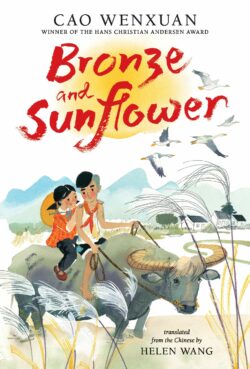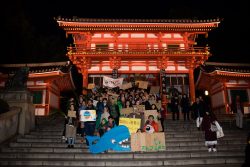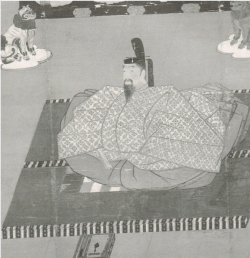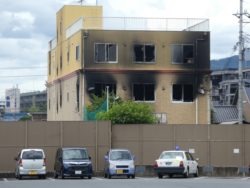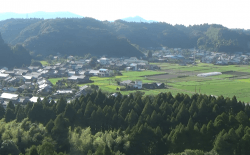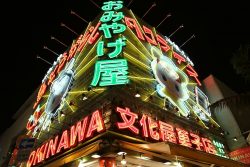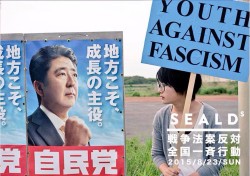Society
The Japanese Diaspora in Japan
What does it mean to be Nikkei, a member of the Japanese diaspora? By being simultaneously Japanese and non-Japanese, Nikkei are forcing a re-evaluation of Japanese identity.
Japanese identity is complex and often oversimplified, its nuances underappreciated. Through interviews with Nikkei—particularly those who have returned to their ancestral homeland—I hope to shine a light on their experiences as outliers of Japanese identity, find common threads, and gain a deeper insight into the edges and unspoken essence of Japaneseness—what it means to be Japanese.
Read MoreThorns of Suffering
Hiromi Ito’s remarkable work, The Thorn Puller, takes readers on a pilgrimage across time, space, and literary genres. First serialized between 2006 and 2007 in the magazine Gunzō as Thorn Puller: New Tales of the Sugamo Jizō (Toge-nuki Jizō: Shin Sugamo Jizō engi), the work won the Hagiwara Sakutarō Prize in 2007 and the Murasaki Shikibu Prize in 2008 before appearing as a single volume published by Kōdansha in 2011.
Read MorePhotography Without Borders: Kyotographie 2023
One of the pleasures of KYOTOGRAPHIE has always been the opportunity to explore Kyoto spaces that are not normally open even to longtime residents, and to appreciate the imaginative ways in which the exhibitions have been staged in them. This year, the number of main venues has expanded to 15, while their geography has contracted, presumably to accommodate the influx of day trippers and international visitors. At the same time, the number of KG+ satellite exhibitions in far-flung locations around town has increased to 92, in addition to the 10 KG+ Select and 9 Special exhibitions.
Read MoreThe 72 Japanese micro-seasons
Ever since our ancestors gazed skywards or closely observed the wonders of the natural world around them, they saw patterns in cycles and found ways to recall them. Different cultures around the world have developed systems to mark the passage of time, and every calendar reveals something about how the people who created it related to the world around them. The ancient Japanese almanac of 72 micro-seasons provides a map of time that is a fascinating mixture of culture and nature.
Read MoreKyoto’s Suburban Rice-fields
As recently as the early 20th century, verdant and productive rice fields dominated the flat lands on the northern outskirts of Kyoto, squeezing small villages up against surrounding foothills. However, in post-war years this fertile farmland has been encroached on and overwhelmed by waves of suburbanization.
Read MoreThirty-One Views of Japan
This book, unique and extraordinary, is full of captivating accounts written by 31 people from all over the world who are living or have lived in Japan. It’s not about what brought them to the Land of the Rising Sun. It’s about the passions and interests that make them stay. “This is a book about the journey from simply living in Japan to actually calling Japan home.”
Read MoreShopping for Children’s Books in Asia
For a few years before the pandemic I was lucky enough to travel to Asia a few times—for work, for pleasure and as a translator of Chinese children’s books. Along the way, I developed a habit of doing quick surveys of the children’s books on sale in international airports, cities, and museums. …I was interested to see the situation in countries where there are generally more translated children’s books available than in the UK.
Read MoreAn Activist for Translated Children’s Literature
As Curator of East Asian Money at the British Museum, Helen Wang might seem an unlikely activist for global children’s literature. But September 2021 found her tweeting daily for World Kid Lit Month (@WorldKidLit), an initiative to promote picture books through young adult novels in English translation. She also collaborates with the China Fiction Book Club, Paper Republic, Translated World, the Global Literature in Libraries Initiative, and the Bai Megui Translation Competition, and she co-founded the blog Chinese Books for Young Readers.
Read MorePortrait of Eroshenko
Eroshenko’s experiences tell us of another era in which Japan was emerging as a cosmopolitan hub and in which Europeans might come to Japan to learn, rather than to teach. It was also an era in which contact and exchange were spreading across Asia, with ideas, people and objects all being coming to Japan from across the continent. However, the story also reveals that, whilst to some a life of travel and reliance upon friendship and the goodwill of others was an inspiration, in the eyes of the Japanese state it came to be seen as a threat.
Read MoreMy Father-in-Law the Japanese Radical
The origins of the Narita struggle date back to 1966, when the government announced it would build Japan’s new international gateway in Chiba, 60km from the capital—without consulting the 360 mostly impoverished local people who farmed the land around the Sanrizuka and Shibayama hamlets. The plan, with its whiff of official arrogance and highhandedness, became a lightning rod for discontent in the economic miracle years. Many farmers resisted and supporters poured into the area, fueling a conflict that quickly escalated.
Read MoreClimate Crisis Sparks a Revival of Youth Activism in Japan
Youth climate activists are faced with the challenge of engaging a relatively complacent student population on an issue that seems much less immediate and visible than the presence of the US military in the 1960s did: environmental pollution and the emission of greenhouse gases.
Read MoreJapan’s Other Emperor
David Kubiak presents a lively and engrossing romp through Japan’s history of imperial ascension, navigating the motley of plotting, deception, spiritualism, and debauchery that wrought the path to the Throne from the 14th to 20th centuries.
Read MoreCall for Submissions: Stories from Hong Kong for KJ 97
We are currently requesting submissions of short fiction and creative non-fiction from Hong Kong to be featured in our Winter Issue No. 97, which will explore the theme of “Next Generations.”
Read MoreCold War Modern and the Nagasaki Triptych
The English-speaking world had had to wait 35 years for the writings of the only trained Japanese scientific observer of the effects of atomic devastation.
Read MoreMourning, Rokujizo, Sunday July 21st 2019
Ken Rodgers Every ten minutes, with every east-bound train, another contingent of Kyoto Animation Co. fans descends the stairs at Rokujizo-Keihan Station. Mutely they join a line stretching from the station to an improvised, far-too-small tent in a cramped bicycle park, to offer flowers and prayers to the 34 victims of last Thursday’s tragic…
Read MoreComfort
A kotatsu is a low table with a blanket or quilt spread over it and a heating device inside. In old houses like ours, the area under the table is often actually sunk into the floor, so the legs can stretch out and the feet can rest directly on the little heater.
Read MoreA Distant Flickering Light: The Hibakusha Peace Movement
Mrs. Koko Kondo showing the manuscript written by her father, Reverend Kiyoshi Tanimoto, that inspired John Hersey’s classic, Hiroshima. Do you think the Hibakusha are still important? They are still very important. This is because those individuals of Hiroshima and Nagasaki are the only humans who have ever experienced and survived a nuclear bombing. That…
Read MoreThe Great Vacancy (Part II)
Having caught a glimpse of Takata’s future, I decided to take action…But should I, as an outsider who arrived in this community some six years ago, continue to pursue this work while members of the community are pursuing their own interests and doing little to help out?
Read MoreReflections on the Singapore Summit: An Interview with Lee Jae-bong
This interview with Lee Jae-bong, a Professor of Peace Studies of Wonkwang University, South Korea, was conducted in the early afternoon of June 12, 2018 while the United States-North Korean Summit was taking place in Singapore. Would you please express your overall view of the significance of the Singapore Summit, which is being conducted as…
Read MoreLadies’ Night: Circling the Bases on Okinawa
In Okinawa, I met a lot of people — locals and retired American service members and their families — whose worlds, whose lives, had always been this mishmash of Okinawa, the U.S., and Japan…
Read MoreThe Crisis of Japanese Democracy
The basic and ongoing challenge to any democracy is that its citizens need to have free and open access to unbiased information. They must further be presented with alternative domestic viewpoints and varying historical narratives as well as being engaged in critical dialogue with the larger world beyond.
Read More







